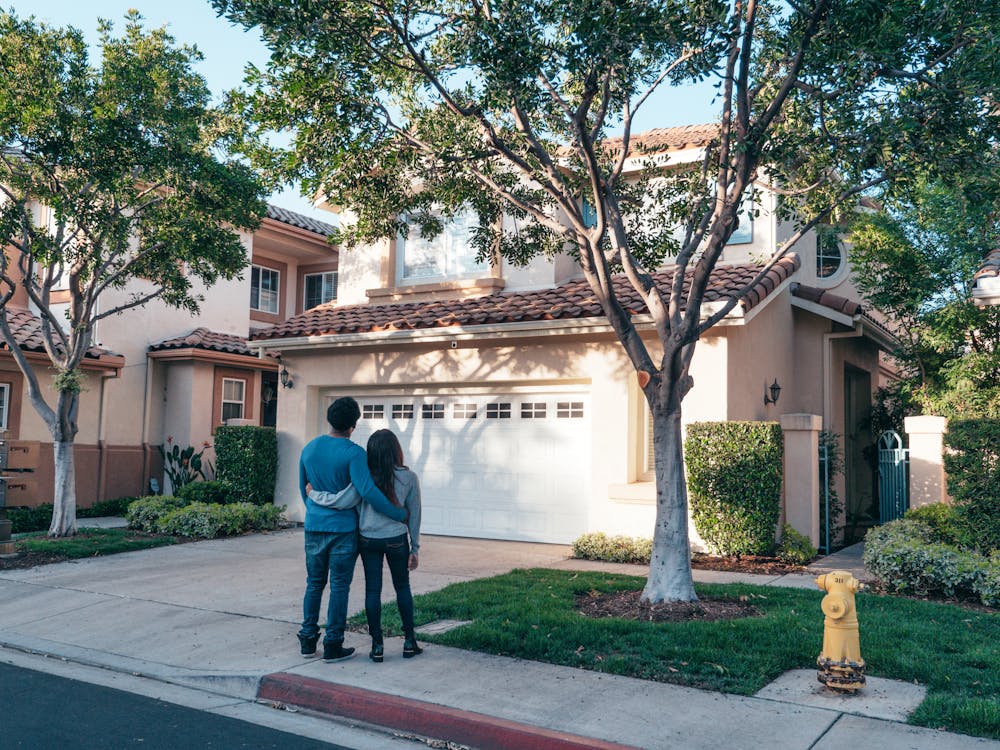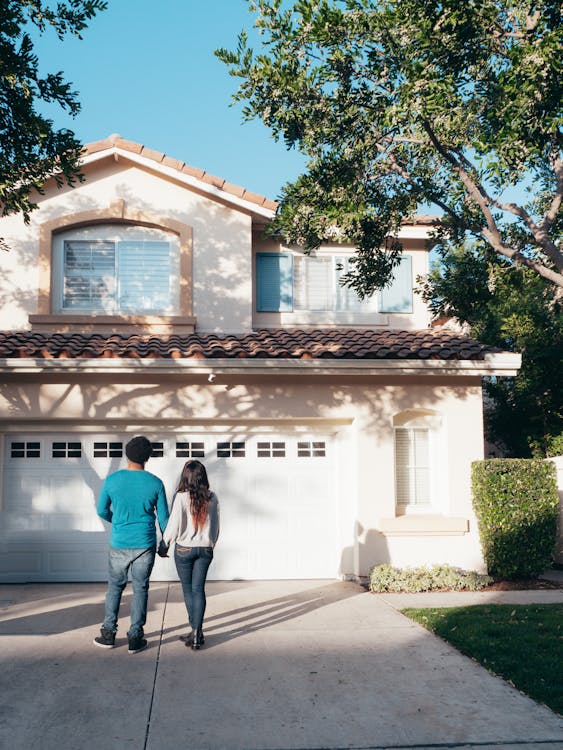
Purchase mortgages are loans specifically designed to help individuals buy a home. In Winnipeg, these financial tools are crucial for many residents looking to step onto the property ladder or upgrade their living situation. This comprehensive guide will walk you through the ins and outs of purchase mortgages in the context of Winnipeg’s unique real estate market.
Key takeaways
- Purchase mortgages are specialized loans for buying homes in Winnipeg
- Down payments typically range from 5% to 20% of the home’s value
- Credit scores, income, and debt levels impact mortgage approval
- Fixed-rate and variable-rate mortgages are common options in Winnipeg
- CMHC insurance may be required for down payments less than 20%
- Local Winnipeg lenders often offer competitive rates and terms
- Understanding Winnipeg’s real estate market is crucial for securing a good mortgage
Understanding purchase mortgages in Winnipeg
Purchase mortgages in Winnipeg are financial products tailored to the city’s unique housing market. These loans enable residents to buy homes without paying the full purchase price upfront. Instead, buyers make a down payment and borrow the rest from a lender, typically a bank or credit union.
In Winnipeg, the housing market has its own characteristics that influence mortgage terms. The city’s relatively affordable home prices compared to other major Canadian cities mean that purchase mortgages here often have different parameters than those in places like Toronto or Vancouver.
Types of purchase mortgages available in Winnipeg
Winnipeg homebuyers have several mortgage options to choose from, each with its own set of pros and cons. The most common types include:
- Fixed-rate mortgages: These offer a consistent interest rate throughout the loan term, providing stability and predictable payments. Many Winnipeggers opt for this type due to its reliability.
- Variable-rate mortgages: The interest rate fluctuates with the market, potentially offering lower rates but with more uncertainty. Some Winnipeg buyers choose this option when rates are expected to decrease.
- Open mortgages: These allow for additional payments or early payoff without penalties, offering flexibility that some Winnipeg residents find attractive.
- Closed mortgages: While less flexible, these often come with lower interest rates, appealing to those who prioritize long-term savings.
The role of down payments in Winnipeg purchase mortgages
Down payments play a crucial role in securing a purchase mortgage in Winnipeg. The amount you put down affects not only your loan terms but also whether you’ll need mortgage insurance.
In Winnipeg, as in the rest of Canada, the minimum down payment is 5% for homes priced under $500,000. For homes between $500,000 and $999,999, it’s 5% on the first $500,000 and 10% on the remainder. Homes $1 million and over require a 20% down payment.
However, putting down less than 20% means you’ll need to purchase mortgage default insurance from the Canada Mortgage and Housing Corporation (CMHC). This insurance protects the lender if you default on your mortgage.
Qualifying for a purchase mortgage in Winnipeg

Securing a purchase mortgage in Winnipeg involves meeting certain criteria set by lenders. These requirements ensure that borrowers can manage their mortgage payments responsibly.
Credit score requirements
Your credit score is a crucial factor in mortgage approval. In Winnipeg, most lenders prefer a score of at least 680 for the best rates and terms. However, some lenders may approve mortgages for scores as low as 600, albeit with higher interest rates.
Income and employment verification
Lenders want to see stable, reliable income. In Winnipeg, this typically means providing proof of employment and income for at least two years. Self-employed individuals may need to provide additional documentation, such as tax returns and business financial statements.
Debt-to-income ratio
Your debt-to-income ratio (DTI) is another critical factor. In Winnipeg, lenders generally prefer a DTI of 43% or lower. This means your total monthly debt payments, including your potential mortgage, shouldn’t exceed 43% of your gross monthly income.
Navigating Winnipeg’s real estate market
Understanding Winnipeg’s real estate landscape is crucial when seeking a purchase mortgage. The city’s market has its quirks and trends that can impact your mortgage search.
Current market trends in Winnipeg
As of 2023, Winnipeg’s real estate market is experiencing moderate growth. The average home price in Winnipeg is significantly lower than in many other Canadian cities, making homeownership more accessible for many residents.
Winnipeg neighborhoods and property values
Different Winnipeg neighborhoods offer varying property values, which can affect your mortgage amount. Areas like River Heights and Tuxedo tend to have higher property values, while neighborhoods like Transcona or St. Vital might offer more affordable options.
Seasonal fluctuations in Winnipeg’s housing market
Winnipeg’s harsh winters can impact the real estate market. Spring and summer typically see more listings and higher prices, while winter months might offer better deals but with less selection.
The mortgage application process in Winnipeg
Applying for a purchase mortgage in Winnipeg involves several steps. Understanding this process can help you navigate it more smoothly.
Gathering necessary documents
Before applying, you’ll need to gather various documents. These typically include:
- Proof of income (pay stubs, T4 slips)
- Notice of Assessment from the CRA
- Bank statements
- Proof of down payment
- List of assets and liabilities
Pre-approval vs. final approval
Getting pre-approved for a mortgage can give you a clearer idea of your budget and show sellers you’re a serious buyer. However, pre-approval doesn’t guarantee final approval. The lender will still need to assess the property you want to buy before granting final approval.
Working with Winnipeg mortgage brokers
Many Winnipeggers choose to work with mortgage brokers. These professionals have access to multiple lenders and can often secure better rates than you might find on your own. They’re also familiar with local market conditions and lender requirements specific to Winnipeg.
Understanding mortgage rates in Winnipeg
Mortgage rates play a significant role in determining the overall cost of your home purchase. In Winnipeg, rates can vary based on several factors.
Factors influencing Winnipeg mortgage rates
Several elements can affect the mortgage rate you’re offered in Winnipeg:
- Bank of Canada rates
- Your credit score
- Your down payment amount
- The type and term of the mortgage
- Current economic conditions
Comparing rates from different Winnipeg lenders
It’s crucial to shop around and compare rates from various Winnipeg lenders. Local credit unions, national banks, and online lenders may all offer different rates and terms.
| Lender Type | Pros | Cons |
|---|---|---|
| Local Credit Unions | Personalized service, competitive rates | Limited product range |
| National Banks | Wide range of products, nationwide presence | May have higher rates |
| Online Lenders | Often lower rates, convenient application process | Less personal service |
The impact of rate changes on your Winnipeg mortgage
Even small changes in your mortgage rate can have a significant impact over the life of your loan. For example, a 0.5% difference in rate on a $300,000 mortgage could mean paying tens of thousands more in interest over a 25-year term.
Closing costs associated with Winnipeg purchase mortgages

When budgeting for your home purchase in Winnipeg, it’s important to factor in closing costs beyond your down payment and mortgage payments.
Land transfer tax in Winnipeg
Winnipeg, like the rest of Manitoba, charges a land transfer tax on property purchases. The tax is calculated on a sliding scale based on the property’s value.
Legal fees and other closing costs
Other closing costs in Winnipeg typically include:
- Legal fees
- Home inspection fees
- Appraisal fees
- Title insurance
- Property insurance
These costs can add up to several thousand dollars, so it’s important to budget for them in advance.
Government programs for Winnipeg homebuyers
Several government programs are available to help Winnipeg residents purchase homes.
First-time homebuyer incentives
The First-Time Home Buyer Incentive is a federal program that can help eligible buyers reduce their monthly mortgage payments. Under this program, the government contributes a portion of the home’s purchase price in exchange for a share of the home’s equity.
Home Buyers’ Plan (HBP)
The Home Buyers’ Plan allows first-time homebuyers to withdraw up to $35,000 from their Registered Retirement Savings Plan (RRSP) to use towards a down payment, without incurring tax penalties.
Manitoba down payment assistance
The Manitoba government offers down payment assistance programs for eligible homebuyers, which can help make homeownership more accessible for Winnipeg residents.
Managing your purchase mortgage in Winnipeg
Once you’ve secured your purchase mortgage, managing it effectively is key to long-term financial health.
Payment frequency options
Winnipeg lenders typically offer several payment frequency options:
- Monthly
- Bi-weekly
- Accelerated bi-weekly
Choosing accelerated bi-weekly payments can help you pay off your mortgage faster and save on interest over time.
Making extra payments
Many Winnipeg mortgages allow for extra payments without penalty. These can significantly reduce your overall interest and shorten your mortgage term.
Refinancing options in Winnipeg
Refinancing your mortgage can help you access lower rates or tap into your home’s equity. However, it’s important to consider the costs and potential penalties associated with refinancing.
Challenges in Winnipeg’s mortgage market
While Winnipeg’s housing market is generally more affordable than other major Canadian cities, it still presents some challenges for homebuyers.
Rising interest rates
Recent years have seen rising interest rates, which can make mortgages more expensive and reduce buying power for Winnipeg residents.
Housing supply issues
Like many Canadian cities, Winnipeg has faced housing supply challenges, which can drive up prices in certain neighborhoods and make it harder to find suitable properties within budget.
Stricter lending criteria
In response to various economic factors, some Winnipeg lenders have tightened their lending criteria, making it more challenging for some buyers to qualify for mortgages.
Future trends in Winnipeg’s mortgage market
Looking ahead, several trends are likely to shape Winnipeg’s mortgage market in the coming years.
Technological advancements
Online mortgage applications and digital closing processes are becoming more common in Winnipeg, streamlining the mortgage process for many buyers.
Sustainable and energy-efficient mortgages
As environmental concerns grow, some Winnipeg lenders are offering special mortgage products for energy-efficient homes or renovations.
Changing demographics
Winnipeg’s changing demographics, including an aging population and increasing immigration, may influence future mortgage products and policies.
Sources
- Making a Large Down Payment: A larger down payment can help reduce the size of your mortgage and lower your monthly payments. According to data from Freddie Mac, the average down payment for first-time homebuyers was 6% in 2020.
- Locking in a Low Mortgage Rate: Mortgage rates can significantly impact your monthly payments. In 2021, the average 30-year fixed mortgage rate was around 3%, according to data from Freddie Mac.
- Choosing the Right Mortgage Term: The length of your mortgage term can affect your monthly payments and the overall cost of the loan. A 15-year mortgage typically has a lower interest rate but higher monthly payments, while a 30-year mortgage has a higher interest rate but lower monthly payments.
- Making Extra Payments: Making extra payments towards your mortgage principal can help you pay off your loan faster and save money on interest. According to data from Bankrate, making an extra payment of $100 per month on a $200,000 mortgage at a 4% interest rate could save you over $32,000 in interest and shave off nearly 5 years from your repayment term.
- Shopping Around for the Best Mortgage Rate: It’s important to shop around for the best mortgage rate to save money on your home loan. According to data from the Consumer Financial Protection Bureau, homebuyers who compared rates from multiple lenders saved an average of $300 per year on their mortgage payments.
Making informed decisions about purchasing mortgages in Winnipeg

Navigating the world of purchasing mortgages in Winnipeg can be complex, but with the right information and guidance, it’s a manageable process. By understanding the various types of mortgages available, the qualification requirements, and the unique aspects of Winnipeg’s real estate market, you can make informed decisions about your home purchase.
Remember to shop around for the best rates, consider working with a mortgage broker familiar with the local market, and take advantage of government programs if you’re eligible. With careful planning and a solid understanding of the mortgage landscape, you can turn your homeownership dreams into reality in Winnipeg. For more information, you can visit our website or contact us
- Tags:
- Purchase Mortgages